Table of Contents
ToggleIntroduction:

Grishma Rutucharya is defined as follows:
Summer is called grishma in Sanskrit, rutu is the word meaning season, and charya is a regimen or the self-care practice to be followed in that season. One of the six rutus (seasons) in a year in Ayurveda is the Grishma Rutu, or summer season. An organized self-care routine has been suggested by Ayurveda for every season of the year.
The final season of Aadaan Kaala, the half-year time of Uttarayana when the sun is heading toward the northern hemisphere, is known as Grishma Rutu, and it takes place from mid-April to mid-June. The sun’s strong rays during this time of year cause the atmosphere’s moisture, and cooling qualities to be depleted.

The result of this is an accumulation of heat and dryness in the human body. During the Grishma Rutu, the fire element is predominant, making it extremely hot. This drains our bodies’ energy and leaves us feeling drained and lethargic.
The body’s pitta dosha greatly grows at this time. We need to eat less light food because the rising heat weakens our fire, or digestive strength. Our bodies need more liquids in this heat, therefore we need to drink a lot of water and sweetened vegetable and fruit juices. But we must keep an eye on our digestive fire and eat only when we are truly hungry.
We are more vulnerable to fatigue, dehydration, sluggishness, and a dry, low-energy sensation during this time of year. During this season, Ayurveda suggests a lower-key diet and reduced physical exertion to preserve regular energy and well-being.
Grishma rutucharya is the name given to the seasonal Ayurvedic regimen that is followed throughout the summer to preserve health and ward off illness.
The following rules apply to Grishma rutucharya (Summer Regimen):

The Dietary Guidelines of Grishma Rutucharya (Summer Regimen):
Ayurveda suggests that to stay healthy during this difficult time of year, one should adopt a cooling pitta-pacifying diet and lifestyle during the summer.
- Eat meals with tastes that are astringent, bitter, and sweet.
- Eat more madhura (sweet), laghu (light), and drava (liquid) foods; when cooking, use ghee (clarified butter).
- Include cold foods in your diet, such as mint, cucumber, watermelon, and coconut water.
- Steer clear of foods that are heavy, deep-fried, hot, oily, spicy, or salty as they may raise body temperature.
- To stay hydrated, sip lots of water. Herbal teas and freshly squeezed fruit juices are additional options.
- Alcohol should be abstained from since it exacerbates the body’s drying out and burning sensations, which cause weakness.
- Foods to stay away from include curd/yoghurt, sour foods, and smoothies made with milk and fruit.
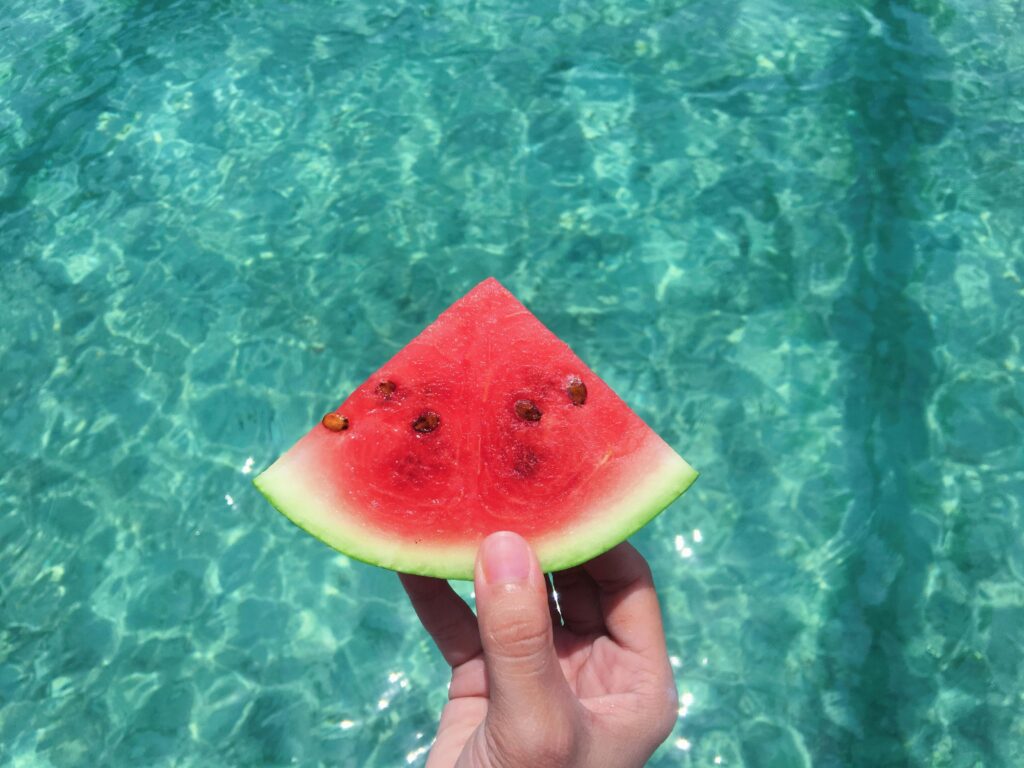
Lifestyle Recommendations of Grishma Rutucharya (Summer Regimen):
- Steer clear of direct sunshine, especially from 10 a.m. to 4 p.m. Wear caps, sunglasses, and protective clothes as needed. Make every effort to avoid being outside in the sun by staying inside. Reduce your time spent in hot and muggy conditions.
- Maintain a regular exercise schedule, but during the cooler hours of the day, choose for less strenuous activities like yoga, swimming, or brisk strolling. Steer clear of hard work and intense exercise in the summer heat.
- It’s advised to take a quick nap during the day in a cool location to prevent becoming tired during the heat. This is advised as summertime brings shorter nights and exhaustion from the intense heat. Take naps in a room that is cool and has good ventilation to prevent heat exhaustion. To guarantee a peaceful night’s sleep, sleep in a room with adequate ventilation and airflow.
Steer clear of large meals right before bed because they may interfere with digestion and quality of sleep. - To lower stress and preserve mental health, practice relaxing methods like deep breathing or meditation.
- Dress in airy, thin clothing and apply cooling, floral scents.
- In Ayurveda, pearls are said to have a cooling effect on the body if worn or taken internally after proper processing. As it is formed in the ocean, that is cool, its effect on one’s body is also cooling.
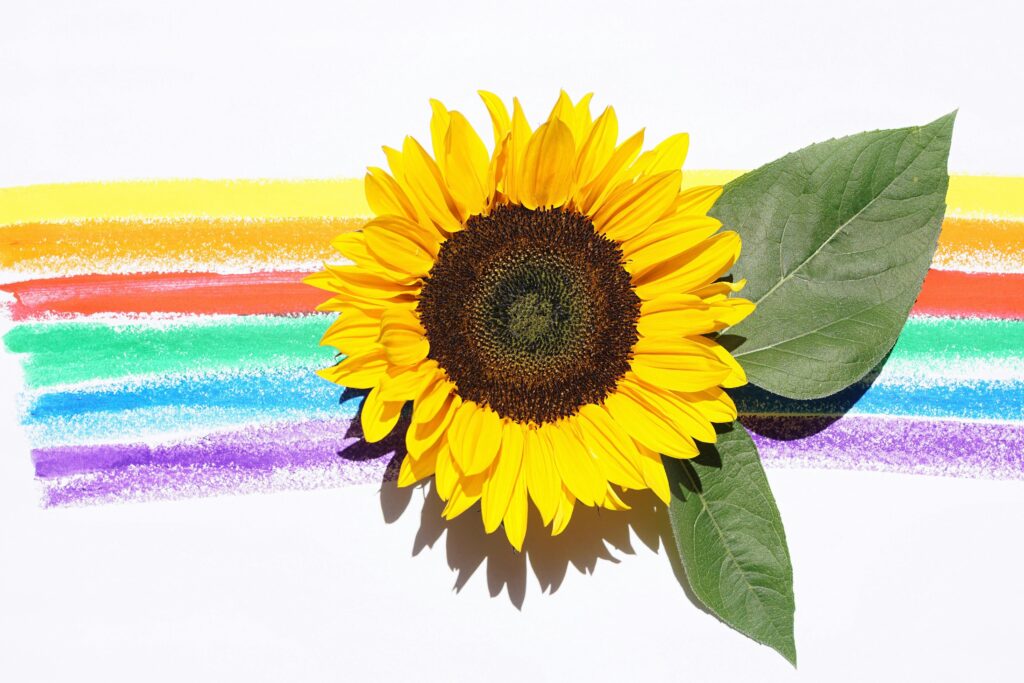
Skin Maintenance of Grishma Rutucharya (Summer Regimen):
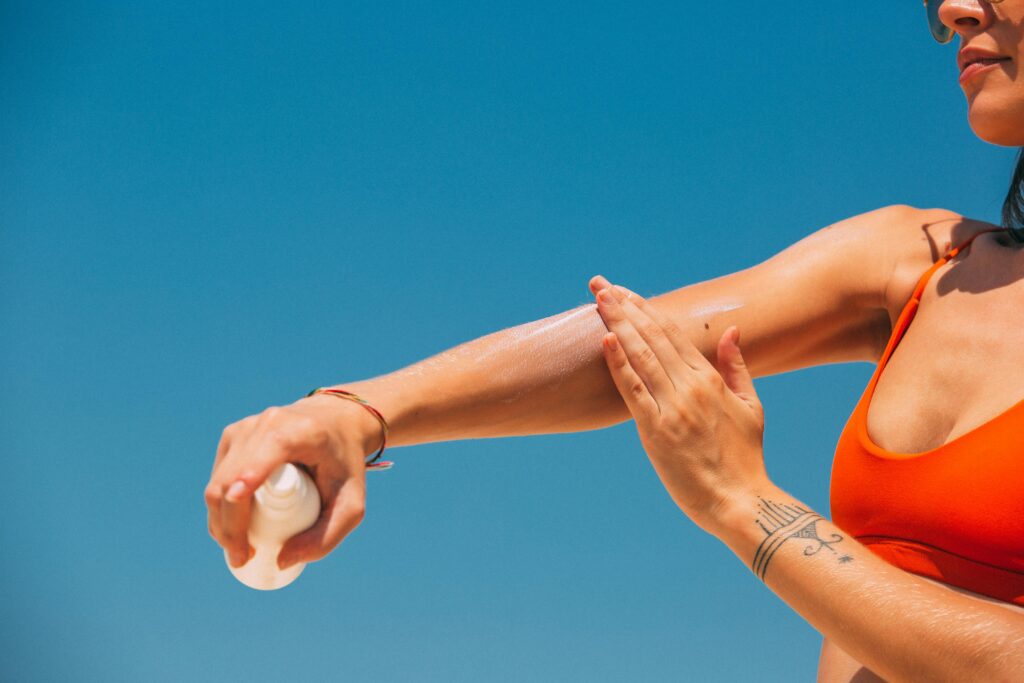
- Use natural cooling oils, such as aloe vera gel or coconut oil, to keep your skin hydrated.
- Use high-SPF sunscreen to shield your skin from damaging UV rays.
- To revitalize and purify the body, take regular cool-water showers.
- After putting sandalwood paste all over your body, take a cool-water bath.
- Before sleep, one can apply sandalwood powder over the forehead, underarms, and back.
- Kasya Thali massage: One can massage on feet with coconut oil or clarified butter (Ghee) before sleep with the help of kasya-thali massage. This will maintain good skin texture on the feet in the summertime and help in conditions like insomnia(Lack of sleep or disturbed sleep) and weak eyesight.
Ayurvedic Remedies of Grishma Rutucharya (Summer Regimen):
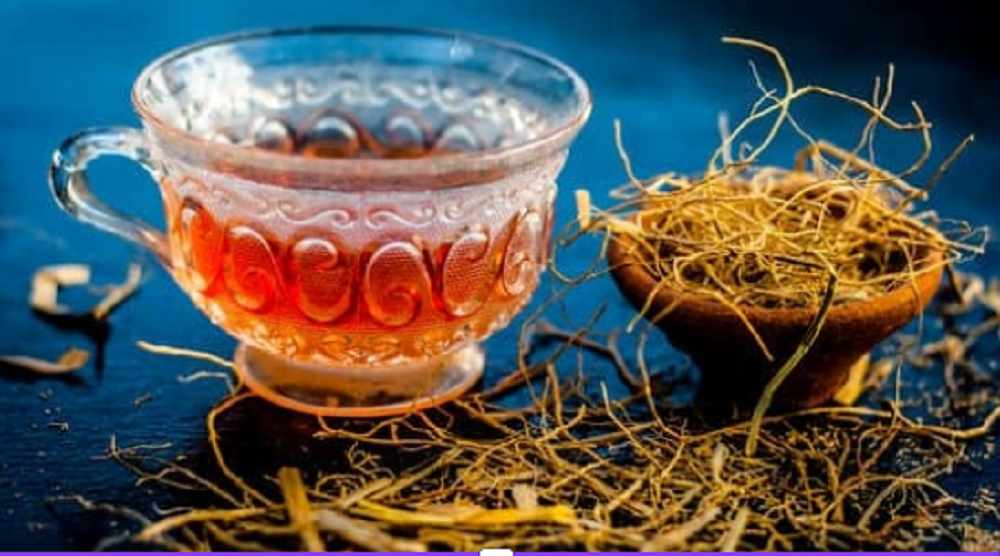
- To regulate body heat, take cooling plants and spices like mint, fennel, and coriander.
- To encourage internal cooling, sip herbal teas infused with liquorice, rose petals, and chamomile.
- Drink plenty of fluids in the form of Jala, or fresh water, Panaka, or freshly made fruit juices made from juicy fruits like mango, grapes, and pomegranate combined with sugarcane, ginger, and cardamom.
In addition to diluted Panaka syrup made from herbs and fruits such as ananta (sarsaparilla), kamala (lotus), gulaba (rose), amra (mango), draksha (grapes), chandana (sandal), ushira (vetiver), and jambhira (lemon).
Mantha is a cooling beverage made by soaking raisins, figs, and dates in cold water for an hour and then blending. When needed, these can be served.
- Rose petals and sugar are used to make gulkand, is a great Ayurvedic remedy that may be consumed on an empty stomach (1-2 tsp) with milk to help lower excess heat and prevent its negative consequences. This lessens a variety of uncomfortable sensations, including burning in the body, eyes, hands, and soles; giddiness from heat; itching; digestive problems; and stomach acid.
- A few herbal remedies are suitable to ingest or apply in the summertime. They lessen pitta and vata doshas and help counteract the negative effects of the summer heat such as Draksha Arishtam, Kshirabala Oil, Eladi Coconut Oil, Nilibhringadi Coconut Oil, Pravala Bhasma Capsules, Shatavaryadi Ghritam, Satadhouta Ghritam, etc.
Conclusion:
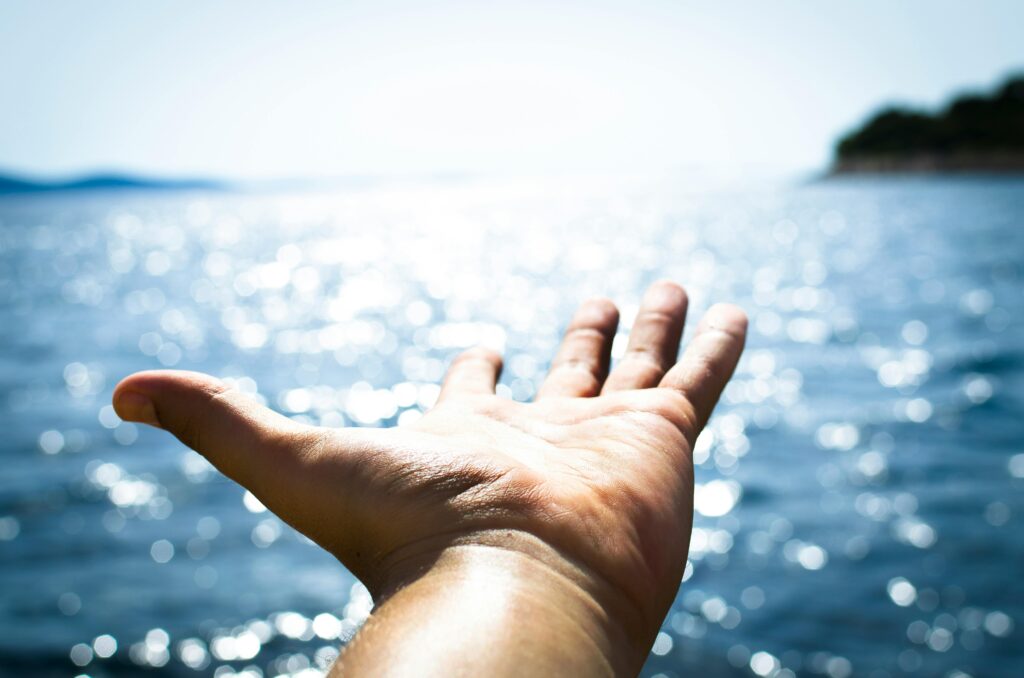
- To keep a pleasant temperature during the warmest portion of the day, stay inside and utilize fans or air conditioning.
- By adhering to these recommendations, you can assist your body’s innate capacity to adjust to the summertime and maintain Ayurvedic-based health and equilibrium. Before adopting any big dietary or lifestyle changes, though, you should always speak with a licensed Ayurvedic practitioner, especially if you have any underlying medical concerns.

Good information👌
Thanks
Nice Information👌
Thanks.
Great information.
Thanks Prashant.
As someone who struggles with the heat, I really appreciate your practical tips for staying cool and comfortable with the help of Ayurveda. Thanks for sharing your wisdom.
Thanks.
Pingback: Consuming curd- Is it unhealthy or healthy? - Aarogya Rahasya